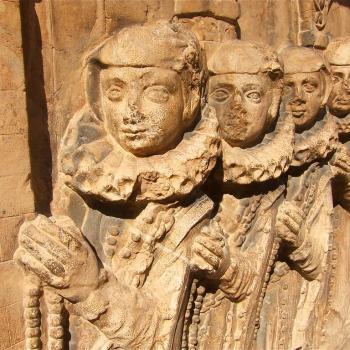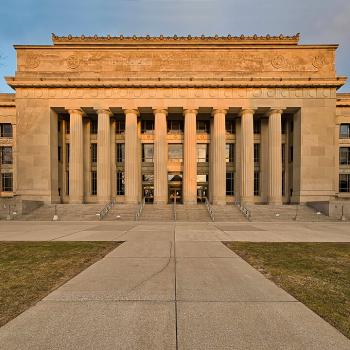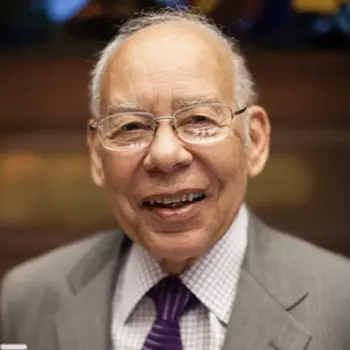A couple of weeks ago I asked; “Where Are the Studies of Twentieth-Century Black Evangelicalism?” I was working on an article on evangelical political engagement and wanted to say something about the role of Black evangelicals, but I was unable to find any good stuff on the subject.
Thanks to the readers of The Anxious Bench and my own blog, The Way of Improvement Leads Home, I was able to find just what I needed. Miles Mullin suggested the work of A.G. Miller, a religious studies professor at Oberlin. As far as I can tell, he knows more about this subject than anyone else. I tracked down a few of Miller’s pieces, including:
“The Rise of African-American Evangelicalism in American Culture,” in Perspectives on American Religion and Culture, ed. Peter Williams (Oxford: Blackwell Publishers, 1999)
“The Construction of a Black Fundamentalist Worldview: The Role of Bible Schools,” in African Americans and the Bible: Sacred Text and Social Texture ed. Vincent Wimbush (New York: Continuum, 2000)”
“National Black Evangelical Association” in Encyclopedia of African American Culture and History eds. Jack Salzman, David Lionel Smith, and Cornel West (New York: Macmillan, 1996″
Here are some of the things I learned from Miller’s work:
- The National Black Evangelical Association (NBEA) was founded in 1963 as the National Negro Evangelical Association. It was a gathering of theologically conservative black evangelicals.
- The founders of the NBEA has their roots in the (largely) white Protestant fundamentalist movement of the early twentieth century. They developed separately from other African American traditions.
- In the 1960s and early 1970s the NBEA struggled through an identity crisis. Would their first priority the dissemination of the gospel, or were they also required to engage in the kind of activism long associated with the black church?
- In 1990 the NBEA considered dropping the term “evangelical” because of its association with white political conservatism.
- Not all black evangelicals can be found in the ranks of the NBEA
- Most African-American Christians are theologically conservative, but are not familiar with the nomenclature of “evangelicalism.”
- American black evangelicalism finds its roots in the black Plymouth Brethren churches and its dispensationalist theology, the Christian and Missionary Alliance and other Holiness churches, and a host of black Pentecostal movements including the Church of God in Christ.
















